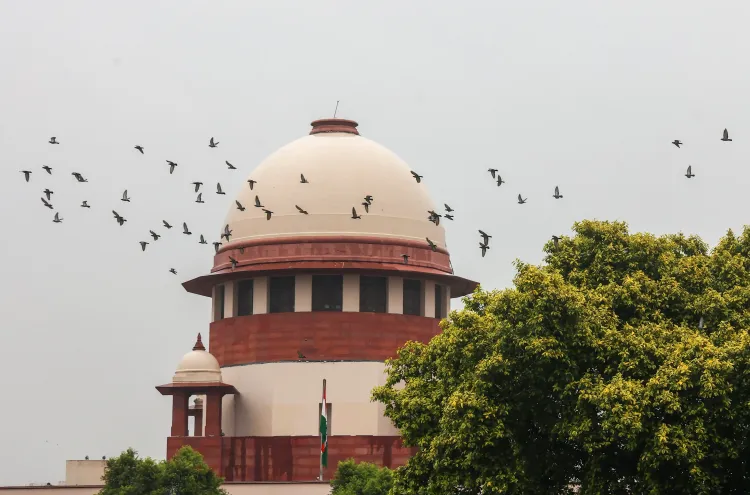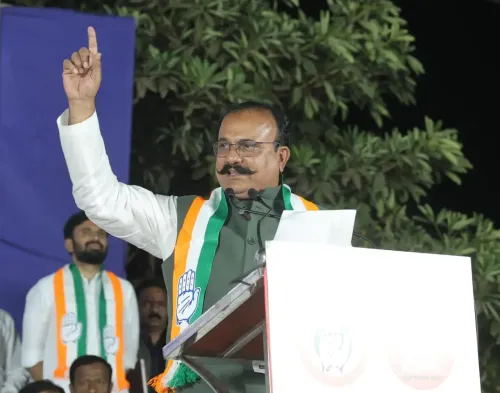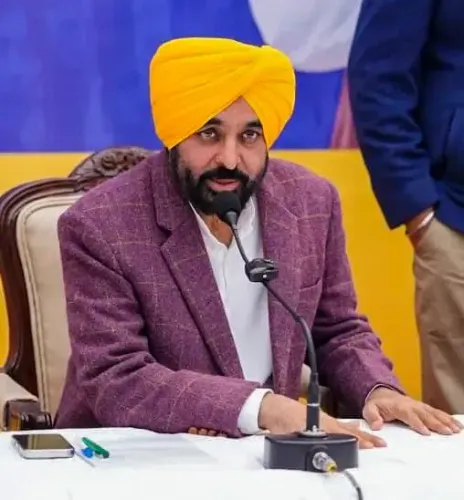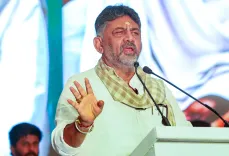What Will the SC Say Tomorrow on the Presidential Reference Regarding Gubernatorial Action Timelines?

Synopsis
Key Takeaways
- The Supreme Court is set to rule on the Presidential reference regarding gubernatorial timelines.
- The ruling could redefine the powers of Governors over state Bills.
- Article 143 allows the President to seek Supreme Court opinions on constitutional matters.
- Earlier cases have shown that the Supreme Court can impose deadlines on gubernatorial actions.
- This decision may impact legislative processes and the relationship between state governments and the executive.
New Delhi, Nov 19 (NationPress) The Supreme Court is poised to announce its opinion on Thursday regarding a Presidential reference under Article 143 of the Constitution. This inquiry seeks clarity on whether timelines can be mandated for Governors to act on Bills passed by state legislatures, considering there is currently no constitutional time limit.
A Constitution Bench, led by Chief Justice B.R. Gavai, had reserved its ruling on September 11 after a thorough examination of arguments over a span of ten days. This included perspectives from Attorney General R. Venkataramani and Solicitor General Tushar Mehta representing the Centre, as well as inputs from states governed by the Opposition, such as Tamil Nadu, West Bengal, Kerala, Karnataka, Telangana, Punjab, and Himachal Pradesh, who opposed the Presidential inquiry.
This past July, a five-judge Bench, which included Justices Surya Kant, Vikram Nath, P.S. Narasimha, and Atul S. Chandurkar, had issued notices to the Centre and all state governments regarding the case titled “In Re: Assent, Withholding or Reservation of Bills by the Governor and the President of India.” They sought the assistance of AG Venkataramani, the Union's chief legal officer.
Following the apex court's decision in the Tamil Nadu Bills matter, President Droupadi Murmu requested the court to provide insight on the options available to a Governor when a Bill is presented under Article 200 of the Constitution.
Earlier this year, in April 2025, a two-judge Bench of the Supreme Court utilized its inherent powers under Article 142 to mediate a conflict between the Tamil Nadu government and Governor R.N. Ravi regarding delays in granting assent to Assembly-passed Bills.
The court ruled that Governor Ravi's refusal to approve 10 Bills in Tamil Nadu was deemed “illegal and arbitrary,” imposing a three-month deadline for both Presidential and gubernatorial approval of Bills that have been passed by the legislature a second time.
“The President is obligated to decide on Bills reserved for his consideration by the Governor within three months from receipt of such reference,” stated the Bench comprising Justices J.B. Pardiwala and R. Mahadevan. If no decision is made within that timeframe, states are entitled to file writ petitions against the President, the Justice Pardiwala-led Bench clarified.
The apex court exercised its extraordinary powers to declare the 10 Bills in question as having been assented to on the date they were re-presented to the Governor after being reconsidered by the state legislature.
The court ruled that once a Bill is returned, re-passed, and presented again to the Governor, it cannot be reserved for the President's consideration.
This ruling appears to subject Presidential actions to judicial review by establishing a three-month deadline for granting assent to Bills, prompting the President to seek a reference under Article 143.
Article 143 allows the President to invoke the advisory jurisdiction of the Supreme Court on significant public issues or constitutional interpretations. In the reference, President Murmu inquired, “Is the Governor bound by the advice provided by the Council of Ministers when exercising options available to him under Article 200 of the Constitution of India?”
Additionally, the Presidential reference questioned whether the Governor's exercise of constitutional discretion regarding Bills is subject to judicial review, especially considering Article 361 imposes an absolute prohibition on judicial review of gubernatorial actions.
“In the absence of a constitutionally-mandated timeline and specified methods for Presidential power execution, can timelines be enforced, and can judicial orders dictate the manner of discretion exercised by the President under Article 201 of the Constitution of India?” the President requested the apex court to contemplate and report its opinion.










